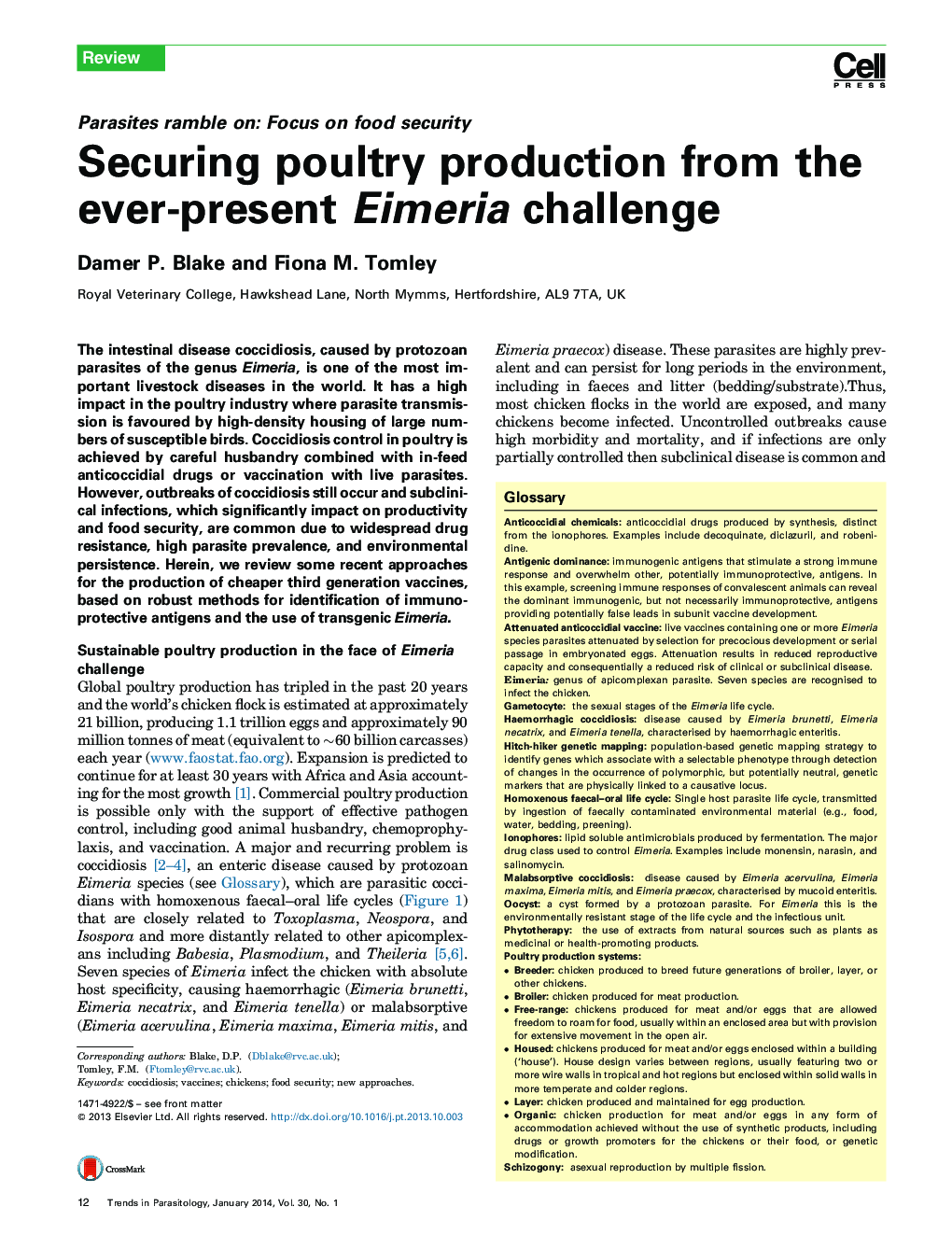| Article ID | Journal | Published Year | Pages | File Type |
|---|---|---|---|---|
| 3423255 | Trends in Parasitology | 2014 | 8 Pages |
•Coccidiosis is a major and recurring problem for livestock productivity and food security.•Current control methods are not perfect.•Progress on third generation anticoccidial vaccines has been slow.•New approaches based on genetics, genomics, and biology offer some renewed opportunities.
The intestinal disease coccidiosis, caused by protozoan parasites of the genus Eimeria, is one of the most important livestock diseases in the world. It has a high impact in the poultry industry where parasite transmission is favoured by high-density housing of large numbers of susceptible birds. Coccidiosis control in poultry is achieved by careful husbandry combined with in-feed anticoccidial drugs or vaccination with live parasites. However, outbreaks of coccidiosis still occur and subclinical infections, which significantly impact on productivity and food security, are common due to widespread drug resistance, high parasite prevalence, and environmental persistence. Herein, we review some recent approaches for the production of cheaper third generation vaccines, based on robust methods for identification of immunoprotective antigens and the use of transgenic Eimeria.
